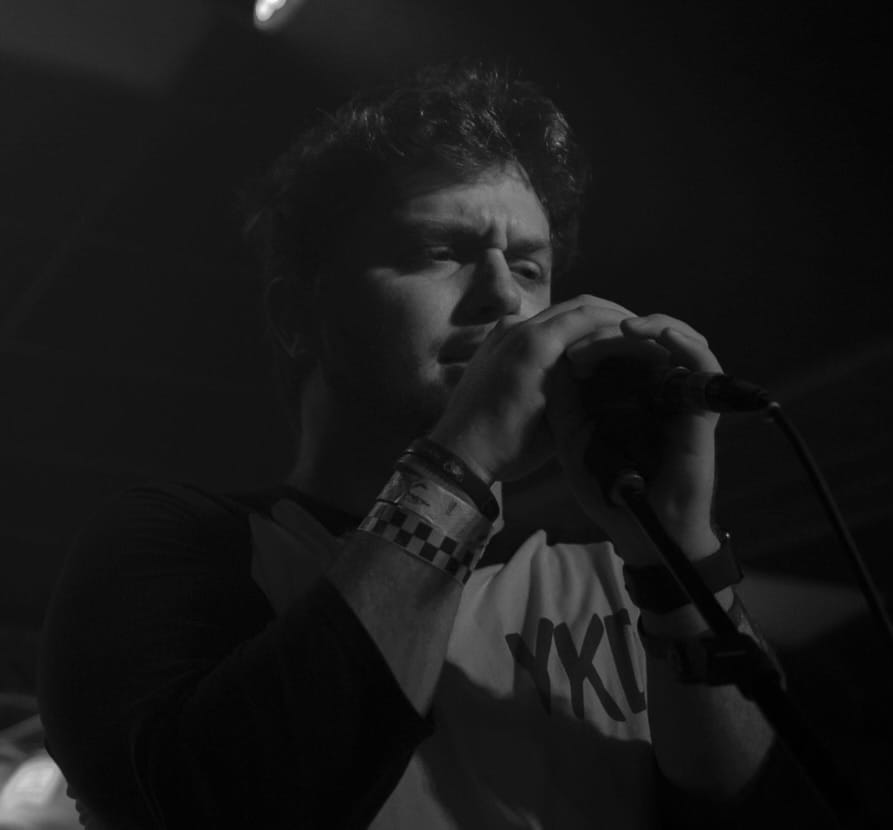Beyond the Beat: How Bittah Dreamer Is Bringing Vulnerability Back to Hip-Hop

In a music scene dominated by trap beats and materialism, Knoxville's Bittah Dreamer stands apart as a throwback to hip-hop's storytelling roots. But don't mistake his old-school sensibilities for living in the past – he's crafting a new lane entirely, one that might just reshape how we think about rap music's role in mental health.
"I want to be rap's therapist," he says, leaning back in his chair during our conversation. It's the kind of statement that might sound pretentious coming from another artist, but there's an earnestness in his voice that makes you believe it. "Most people my age rap about guns, drugs, and things like that. I want to tell stories. Real stories. Human stories."
This approach to music runs in his blood, even if his specific path doesn't. Born into a family of musicians – church choir singers and band members – Bittah Dreamer chose to be the black sheep, forging his own path in hip-hop. But that musical foundation gave him something crucial: an understanding of songwriting as craft, not just performance.
His resume already boasts impressive credentials. He's shared stages with hip-hop legends like Onyx, Devin the Dude, and RA the Rugged Man. Recently, he caught the attention of super-producer Timbaland, a development that hints at even bigger things on the horizon.
But it's not the co-signs that drive him. In fact, when asked about his goals, he barely mentions traditional measures of success. Instead, he talks about reaching people who are struggling, who need to hear they're not alone. "I want to show the vulnerable side," he explains. "I want to show what it's like to be human."
It's a mission that comes with its own unique challenges, especially in Tennessee, where country music reigns supreme. "Being a hip-hop artist in a state that's primarily country music-based has been very difficult," he admits. "People here often believe all rap is the same, that there's no meaning behind any of it. They believe in stereotypes more than checking the proof themselves."
But rather than let this discourage him, Bittah Dreamer sees it as motivation to prove them wrong. Currently, he's working on two ambitious albums, with potential features from artists like Futuristic, Wrekonize, SwizZz, A.F.R.O, and Carson Elliot. While release dates aren't set in stone, the projects promise to showcase his storytelling approach in its most refined form yet.
What makes Bittah Dreamer's approach particularly refreshing is how he views his role as an artist. In an era where many rappers position themselves as larger-than-life figures, he's more interested in being relatable. "I know it might sound corny and repetitive," he says, "but I want people who hear my music or read about my story to know they're not alone. And it'll mean something to somebody."
This commitment to authenticity extends beyond his lyrics. His music showcases full song construction, demonstrating his capabilities not just as a rapper, but as a complete songwriter. It's an approach that harkens back to hip-hop's golden age while pointing toward a future where rap music might be recognized as a legitimate form of emotional therapy.
For those ready to dive into Bittah Dreamer's world of storytelling and vulnerability, his music is available across all major platforms, and updates about his upcoming projects can be found on his Instagram (@iambittahdreamer). But perhaps the best way to understand his mission is to approach his music the way he creates it: not just as entertainment, but as therapy sessions set to a beat.
In a genre often criticized for promoting superficial values, Bittah Dreamer is doing something radical: he's being human. And in doing so, he's reminding us that sometimes the most powerful thing an artist can do is simply tell the truth.